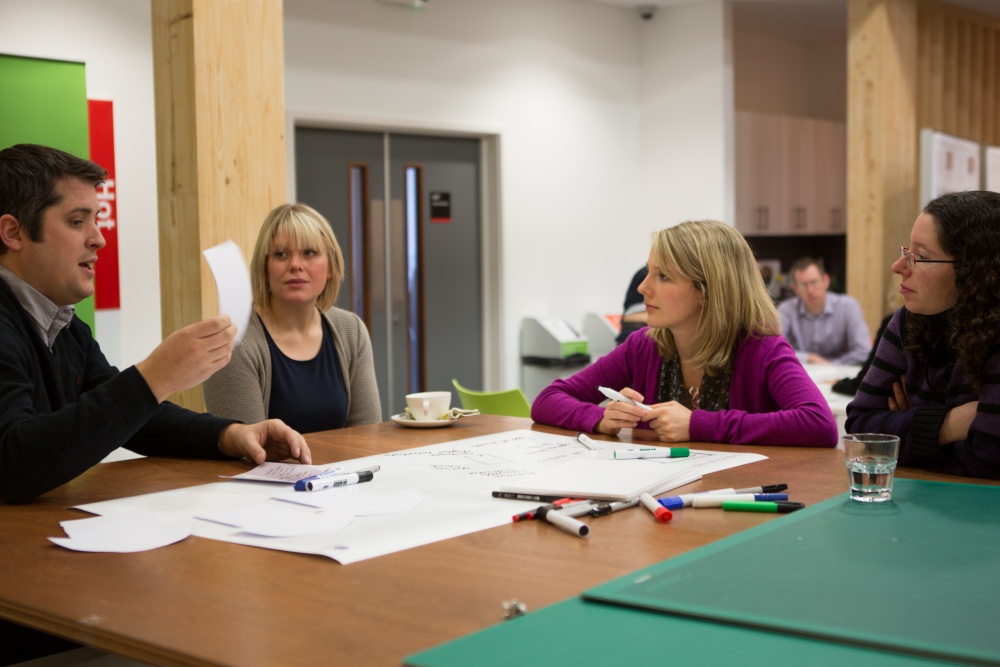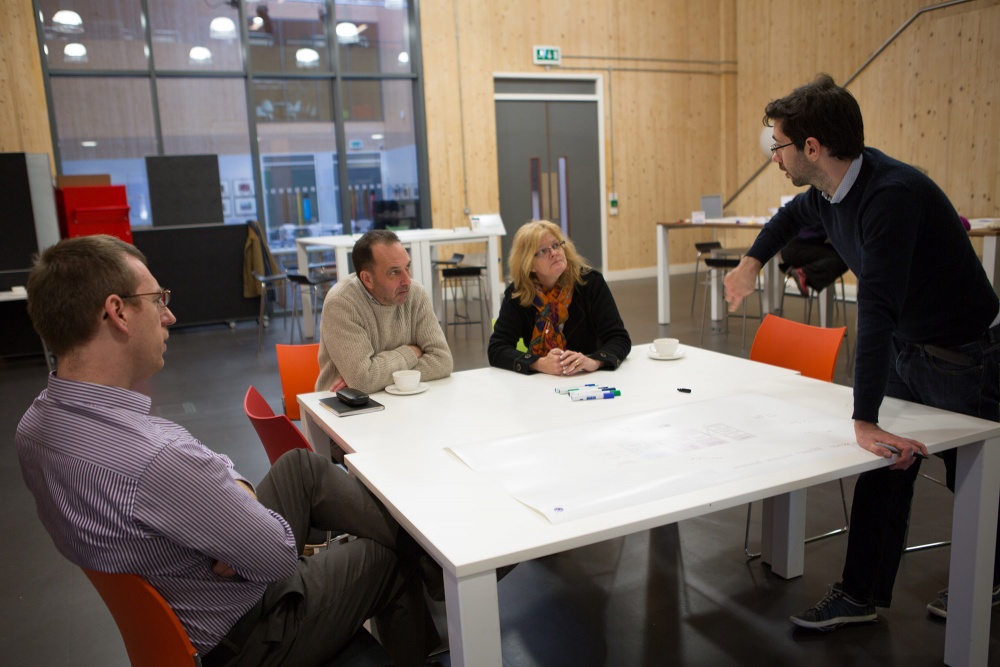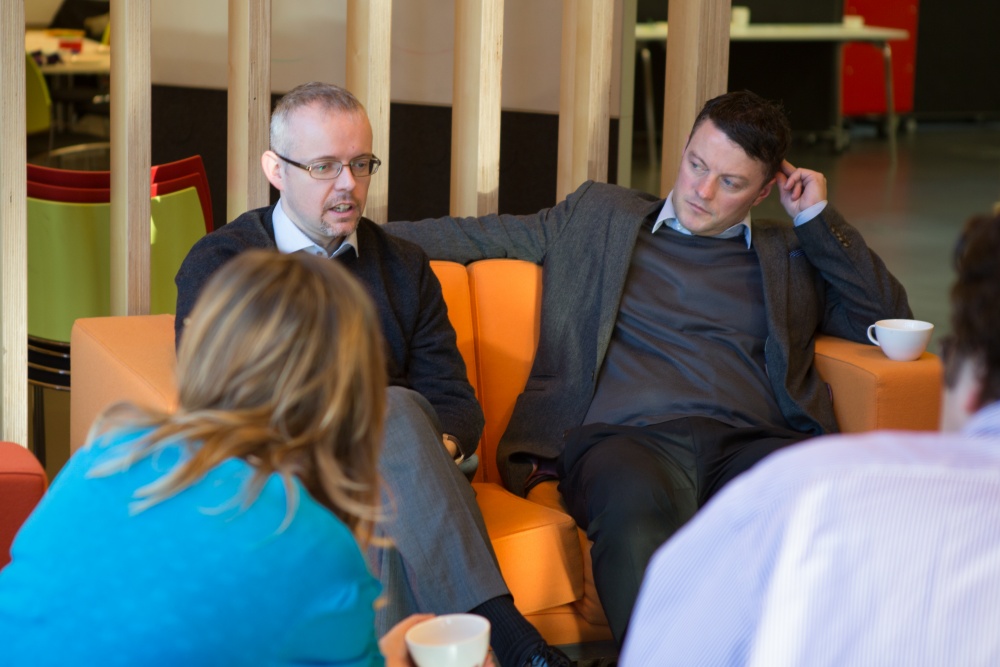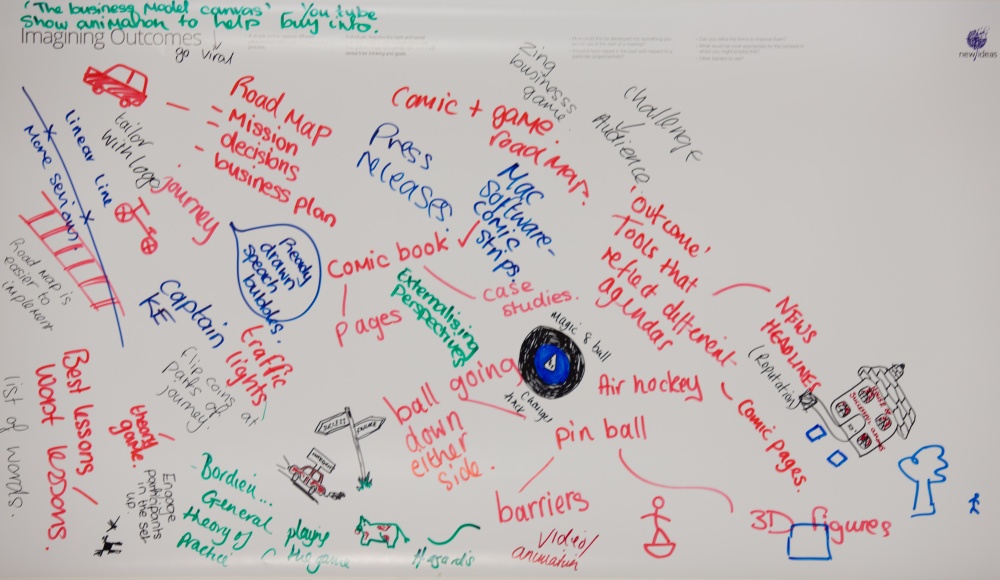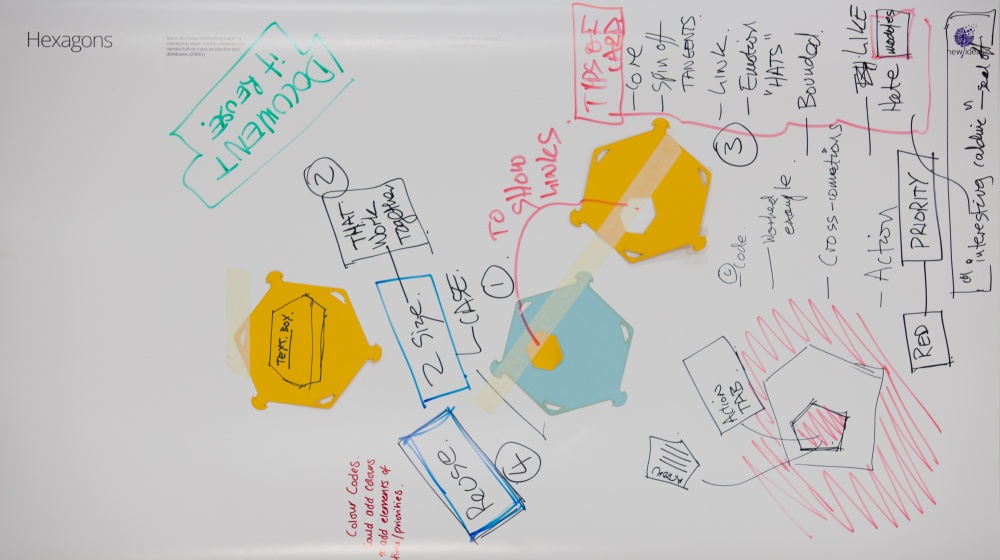This series of three labs has been aimed at enabling the participants in the group to lead the co-design of new tools. The participants were from computing, business, health, environmental research and the arts.
In this final session, we took six ‘proto-tools’ drawn from the previous workshop and developed them as a group. These included very general tools that could be used in any meeting, workshop or brainstorming session that needed to generate and document new ideas. For this we developed a new approach that replaces the post-it, but rather than allowing individuals to scattergun their ideas our tool requires new suggestions to connect to previous ideas, making people engage with others in room. We also developed new ways of generating case studies, and a different approach to growing expert mentor groups organically.
Now our job in Imagination is to take the prototypes, sketches and suggestions from the session and develop these into fully fledged robust designs for knowledge exchange tools. These will be piloted in the coming months with the participants of the workshop series as they work within their departments across the university. These tools will then be made available across the university and in time become freely available to all. If you are interested in taking part in the development and testing of these tools please contact me at l.cruickshank@lancaster.ac.uk.
Before Christmas, the participants of these workshops will receive a book documenting the whole process and the outcomes at each stage, however this will be unfortunately reserved strictly for the attendees. If you would like to see a copy of this, please find a participant and ask them to take a look.
In addition to developing and batch producing these tools, the next step in the IDEAS project is a major new initiative looking to ‘redesign the meeting’. This will be looking at the whole meeting problem space from before the meetings forms, to activity in the space, to action points, minutes and measuring impacts. We will also be looking at different types of meeting, including internal (where everyone knows each other) to inter-department or institution (where politics is important) to international project groups where language and politics make for a particurlly difficult knowledge exchange landscape.

